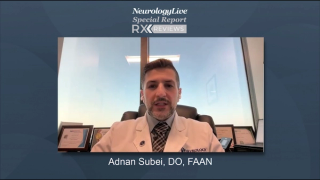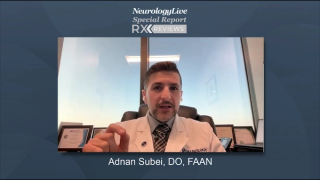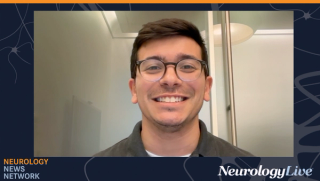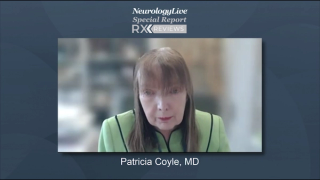
MS and Demyelinating Disorders
Latest News

Latest Videos

CME Content
More News

Results showed that the immune response observed in patients with multiple sclerosis was specifically modified by treatments interfering with Epstein-Barr virus hosts cells or activated lymphocytes.

Test your neurology knowledge with NeurologyLive®'s weekly quiz series, featuring questions on a variety of clinical and historical neurology topics. This week's topic is on myasthenia gravis.

In the original phase 3 studies, treatment with ozanimod resulted in significant reductions in clinical relapses and lesion counts on MRI as well as slowed brain volume loss relative to intramuscular interferon-β-1a.

Towards the end of ofatumumab dosing, administered monthly via subcutaneous injection, patients noted issues like fatigue, cognitive impairment, and gait difficulties.

A phase 3 trial revealed that simvastatin, while safe, did not significantly slow disability progression in patients with non-active secondary progressive MS.

Take 5 minutes to catch up on NeurologyLive®'s highlights from the week ending September 20, 2024.

In a phase 3 study, tolebrutinib demonstrated a statistically significant delay in time to onset of confirmed disability progression in patients living with non-relapsing secondary progressive multiple sclerosis.

The randomized phase 3 trial will test the hypothesis that the initiation of azathioprine after a first attack of MOGAD could prevent further relapse and disability accrual.

The staff neurologist at the Mellen Center for Multiple Sclerosis at Cleveland Clinic talked about a promising therapy that slows the progression of disability in non-relapsing secondary progressive multiple sclerosis. [WATCH TIME: 2 minutes]

The positive finding on the secondary end point of 6-month confirmed disability worsening supports the data from the phase 3 HERCULES trial in secondary progressive multiple sclerosis.

The associate professor of neurology at Harvard Medical School discussed a study presented at ECTRIMS 2024 that compared the effectiveness and safety profiles of FDA-approved NMOSD therapies with other commonly used treatments. [WATCH TIME: 4 minutes]
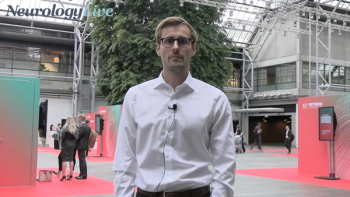
The neurology resident at the University Hospital Frankfurt in Germany talked about a study presented at ECTRIMS 2024 that analyzed time delays in initiating high-efficacy treatments in patients with multiple sclerosis. [WATCH TIME: 4 minutes]

Nicole M. Boschi, PhD, the director of regulatory affairs at the National MS Society, talked about the impact of the upcoming Medicare Part D and Medicare Advantage changes for the multiple sclerosis community.
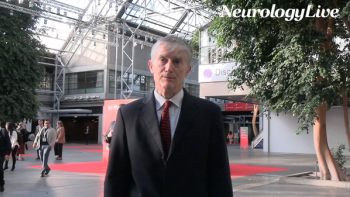
The codirector of the Precision Medicine MS Center at Johns Hopkins University discussed the new updates to the MS diagnostic criteria presented at the 40th ECTRIMS Congress in Copenhagen. [WATCH TIME: 5 minutes]

Data from the MAGNIFY-MS study suggest that low 24-month PIRA rates across age groups and among those with or without treatment experience.

The data showed only a small number of infusion-related reactions among patients with MS transitioning from other disease-modifying therapies.

The 2-year study highlighted the potential of cladribine to promote remyelination in highly active relapsing-remitting MS, particularly when early disease control is achieved.

A large-scale study presented at ECTRIMS 2024, conducted by the Alliance for Research in Hispanic MS Consortium, identified ancestry-specific genetic factors that influence the risk of developing multiple sclerosis.
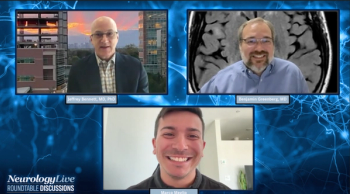
In this episode, a pair of neuroimmune experts discussed some of the emerging research for patients with MOGAD, highlighting the need for immunological markers, remodeling therapies, and enhancements to diagnostic criteria. [WATCH TIME: 5 minutes]

Based on findings from the study, investigators stressed the need for better streamlined access to high-efficacy therapies for pediatric patients with onset multiple sclerosis.

The pair of neurologists provided clinical insight on a number of lingering non-treatment unmet needs for patients with MOGAD, including improved care for pediatric patients and underreported complications like sleep disturbances and genitourinary issues in adults. [WATCH TIME: 5 minutes]

The consultant neurologist at Imperial College Healthcare Trust discussed a proposed concept of smoldering disease in multiple sclerosis that covers progressive symptoms that go beyond traditional focal inflammatory activity.

In this discussion, the pair of neurologists explore the latest drug development and ongoing clinical trials for MOGAD, a rare neuroimmune disorder. [WATCH TIME: 4 minutes]

In this segment, Bennett and Greenberg explore the diagnosis, acute treatment, and long-term management of MOGAD, highlighting current therapies and ongoing research. [WATCH TIME: 8 minutes]

In this episode, Greenberg and Bennett provide some perspective on the fluidity of MOGAD diagnosis and how it could potentially change over time as more is understood about neuroimmune disorders. [WATCH TIME: 5 minutes]






